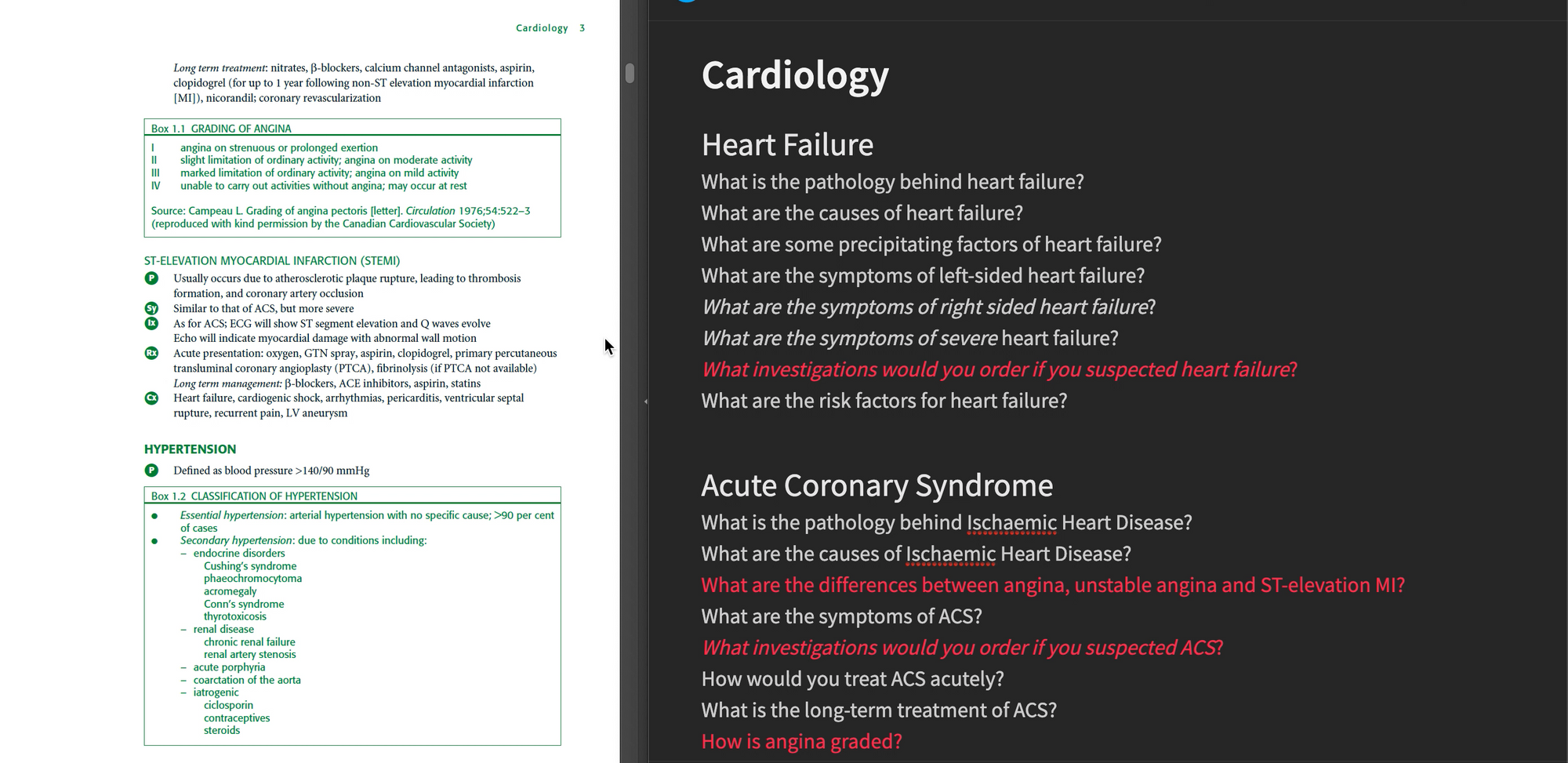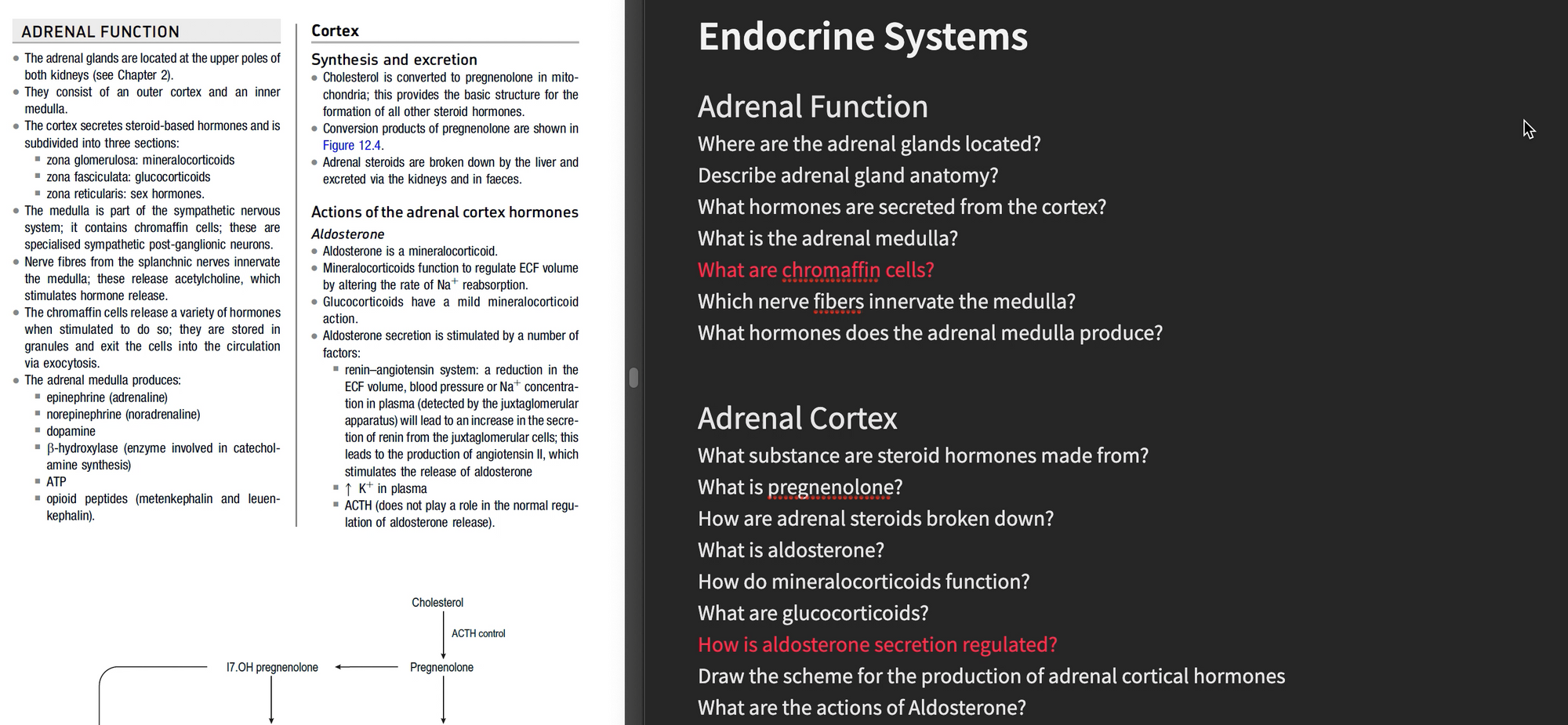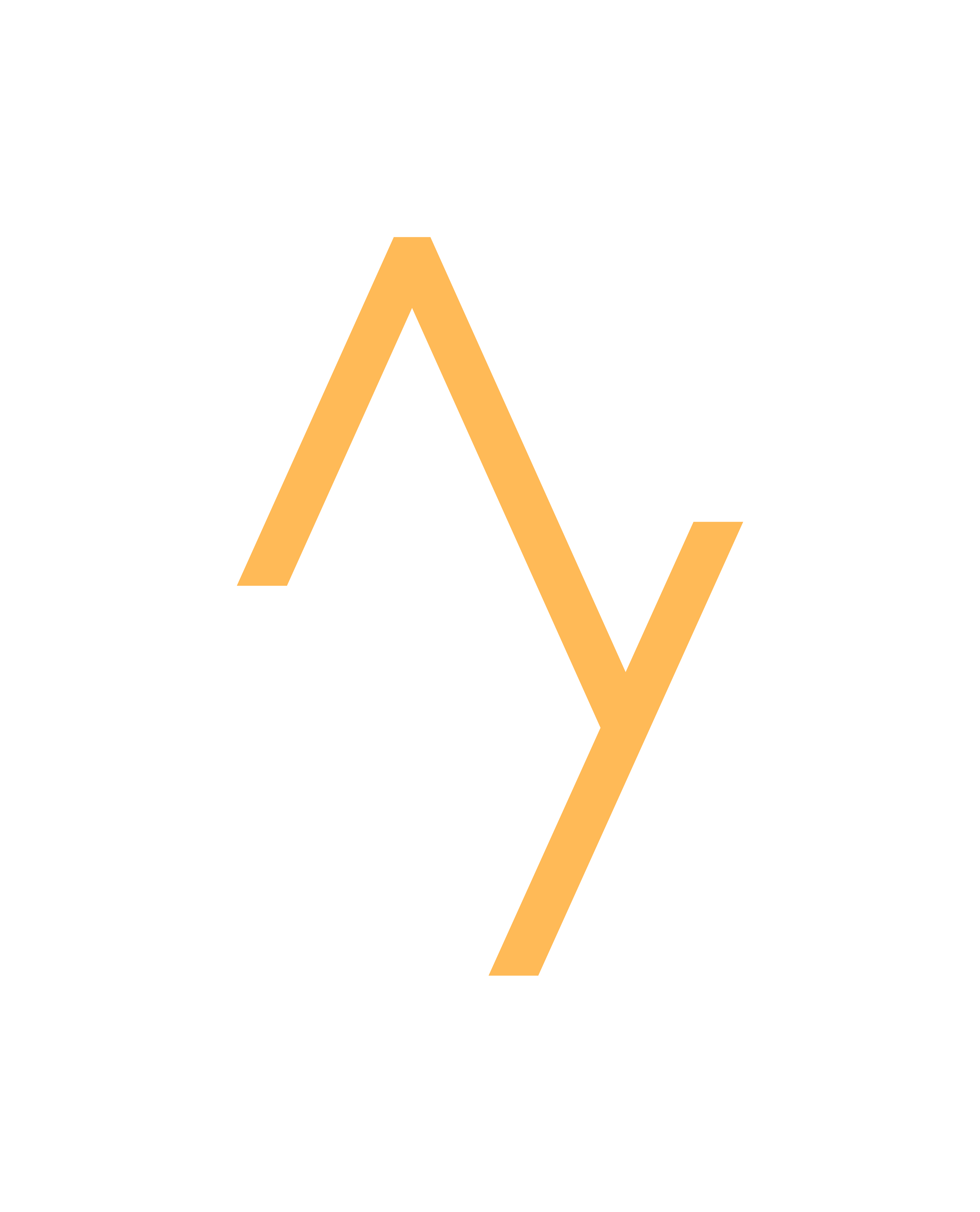How I Got Top Grades in Medical School and Surgical Exams Using Active Recall - A Practical Guide
I'm going to breakdown the exact system that I used when coming top in medicine and surgery exams and show you how to create your own study questions and test yourself using a technique known as the question recall framework so that you can get top grades too.
While highlighting, reading and making colourful notes can seem productive and fill time it's definitely not the most efficient and effective way to learn. So I'm going to show you the specific strategy I used for creating active recall questions to test myself and consistently score top grades in exams with limited studying time while working as a surgeon.
-4.png)
How The Question Recall Framework Works
So what is the question recall framework? Well it's a purely question-based active recall method that is all about converting your existing course materials into questions you can practise in your own time to help you study more efficiently and get top grades by using evidence-based methods like active recall and spaced repetition.
Essentially it is a system where instead of writing notes or trying to summarize content from lectures or textbooks, you instead write out lots of questions and then when you come to study for the exam you go over those questions at spaced intervals. After a few spacing intervals you'll likely start to know things pretty well.
So what does this look like practically?

Well the framework involves first creating questions from your lecture notes, course syllabus or textbooks; then you add the questions to your spaced study schedule and test yourself and then you identify knowledge gaps through testing and go back to your notes or use other resources to consolidate your learning.
The majority of the information that you need to learn for exams will be in your lecture handouts, textbooks or powerpoint slides and as we know from this evidence-based learning series simply re-reading or highlighting or even summarising these resources isn't an effective way to learn. Studies like Dunlosky et al in 2013 have proven that active recall and testing yourself with questions is a far more efficient and effective way to learn and spacing out your testing sessions will help you to remember information for longer and avoid the effects of the forgetting curve which was identified by Ebbinghaus way back in the 1880s.

If you want to learn more about the science behind active recall and spaced repetition check out my earlier articles in the learning series as we're now going to look in practical detail at how they can be used to study for exams and get top grades consistently.
How I Used It For My Exams
So when I was studying for medicine and then when I was studying for surgical exams around my day job as an orthopaedic surgeon I was obsessed with being efficient with my time. When I was in my first year of medical school I failed an exam because I just read over lecture notes highlighting things and didn't really test myself as no-one taught me how to study.
I then started structuring my exam preparation blocking out a few weeks at the start of any revision period to create questions - when my friends were summarising or re-reading their notes. I'd also actively create questions during lectures without taking notes and I have a video on why i took no notes in med school coming after this video so be sure to hit subscribe if you want to learn about that in more detail.
This question creation method can be used for any subject not just medicine and science and how you create your questions and where you store and organise them is entirely up to you. For me I used Evernote for my medical finals and surgical exam revision by creating a notebook called medical finals revision and then creating cards for each topic area such as cardiology. You can equally use a word document, Notion or any other note taking system that is easy for you. I then organised each note with a heading that matched the lecture notes, textbook or powerpoint I was creating questions from and then added questions. At the end of this video I'll look at how you can adapt the system for subjects like maths and physics which use calculations so make sure to stick around. But first how the heck do you even write questions from notes and textbooks? Well let's dig into that now.
Creating the Questions From Notes
Creating questions can seem pretty intimidating at first but once you know how to do it and have a system it's actually pretty quick to do and it's as quick or quicker than re-reading, summarising or taking notes which we know are inferior learning methods.

As you can see most lecture handouts or textbooks have information and facts organised by topic and for medicine this was then broken down by things like causes of a condition, symptoms, how to treat it and so forth. There was also deeper knowledge around physiology, pharmacology and things like why and how drugs work or the anatomy of the heart.
The first thing I do is to organise my note or word document with headings for the topic areas in a logical structure that matches the source material or exam syllabus so I can quickly jump to sections I want to learn. When creating the questions I will have the lecture notes or source material on one side of my screen and then Evernote or Word on the other. I'll then read through the source material thinking how can I turn any facts into a question. I'll also be thinking about anything that is mentioned in the text, video or whatever the source material is that I don't know or I'm not sure about and I'll create a question from this too. So for example if we're creating questions on the physiology of the Adrenal gland like I did in my surgical exams and there is a fact like "the cortex is divided into 3 sections..." then immediately I'm thinking I can add questions like "what is the adrenal cortex?", "how is the adrenal cortex divided?", or even just "what is the structure of the adrenal gland?".
To help focus your questions and create better questions you need to make sure that the questions you create are both useful and relevant. To help make them useful and relevant I'd suggest two tactics: first look at past papers or speak with successful students to get an idea of the difficulty of the exam and the depth expected of your answers. Second go through the exam syllabus and make sure you know everything that might come up. This will give you a quick top-level overview and will help you to prioritise and organise your questions and ensure they are useful and relevant to what you're learning. Lecturers and slides may sometimes go off topic with things that won't be tested and don't waste time on areas of the syllabus that aren't high yield or which you already know well and are very basic.
-4.png)
My personal focus at this stage is just to create as many questions as possible. You don't need to be a perfectionist and create hyper specific questions, just a few per slide or topic area that cover the main points that are commonly assessed. I don't add in any answers or get distracted or go off topic and focus on high yield sections I know have come up before in past papers or are highlighted by the syllabus. I set myself a challenge of converting all the source materials into questions and will usually try and convert a chapter or lecture in a few pomodoro intervals. The process of creating the questions helps to stimulate some elements of active recall as I'm thinking how well I know topics as I create the questions and the first time I did it the challenge of creating the questions and having a goal was actually much more enjoyable than just reading or highlighting and helped me to focus and probably absorb more information on my first pass of reviewing the lecture notes. In the examples you saw it took me the same time as reading and taking notes or reading and highlighting to create questions.
For topics like medical conditions where lots of the facts are grouped into common sections such as causes of a disease, symptoms, treatment and complications a helpful hack to speed up creating questions is to use a common questions stem like "What are the causes of ...." and then copy and paste a block of common questions and add in the specific disease or condition at the end to save time. You can apply this to anything with a common structure from French vocab to origins and insertions of muscles in anatomy. You can also be creative and add in questions like "Draw the structure of the heart" or "Say out loud the French for where is the library" but try and stay focused and don't overcomplicate things as you just want to get through as many questions as possible and you can always add in more later which we'll touch on in the section on how to fill in the gaps.
Testing Yourself
Once you have spent time creating your questions it's then time to test yourself. Just like in my article on How to Study for Exams it's a good idea to plan out your study sessions around topic areas and use spaced repetition intervals to revisit so you don't forget what you've learned due to the forgetting curve.

When it comes to testing yourself the way that I did it was that I would go through each question in a structured approach. I'd first look at a question and try and recall in my head the answer and see how well I knew the answer without writing anything down. I might then try and write something down to assess the level of detail that I knew. If a question completely stumped me or it was obvious that I didn't know it I will highlight it in red as you can see in the questions list. This was helpful as when it got closer to the exams I might quickly skim over my list of questions and self-test in my head to save time and then I could also focus on the questions in red which I had found the hardest.
When testing, in addition to my self-created notes I would also use past-papers, question banks and peer-generated questions as outlined in my article on How To Study for Exams. This then helped to test my knowledge beyond what I had pulled out of my own notes and I would add in additional questions from the past papers and question banks if there was anything that I hadn't covered, adopting a belt and braces approach so I knew where my knowledge gaps were.
Fill in Your Knowledge Gaps
In my Sunday newsletter I've had some people replying when I mentioned this method asking "what do you do if you don't know the answer to one of the questions that you've written?" or "How can I not take notes".
When doing questions and testing myself I don't care if I don't know something and don't stress about it I'm just laser focused on getting through as many questions as possible and creating new questions from anything I don't know and highlighting in red the questions I find difficult so I can then fill in any gaps. If I do a question and don't know it fully I'll dive back into the lecture notes or read around the topic and then test myself again.
The act of finding information in the lecture notes or a textbook, means that I'll be able to see what section the information is in, and I'll see where it fits into the bigger picture around that topic and be able to access more information in structured slides and books than in any short bullet point notes I might make myself. We're going to be getting that information in the context of the rest of the subject. And then, instead of just reading about the thing we are looking up, we'll also read a little bit more around the topic and understand the subject a little bit better in more detail and connect it to other topics we're learning. By going back to things like slides and diagrams you also build up a mental map for where the information is which for me is a bit like the Method of Loci or using memory palaces to associate facts that you are learning with positions and images. For example if I've needed to repeatedly go back to a lecture on cardiology and a specific slide when filling in my knowledge gaps on hypertension I might have gotten used to visualising the slide and the diagram of the heart pump which helps me to more quickly recall the information I need. When I recall that information again I'll see the slide and layout and information in my mind and it helps me to quickly recall those facts.
When I was revising for my surgical exams where there was a ton of information and I needed to learn around my day job as a surgeon I didn't bother adding in answers and I just went back to the same resources if I didn't get something right or spotted a gap in my knowledge which is definitely the most time efficient way to do it but the most important takeaway is do what works best for you.
With all of these steps try and optimise for speed rather than adding in extra steps like adding in answers or colouring questions by difficulty, keep it simple, as with subjects like medicine there is a lot of information to get through and so any inefficiency in your process will add up and cost you time.
Applying This System Yourself
The question recall framework of creating questions, testing and then filling in knowledge gaps isn't just for medicine and surgery and can be applied to any subject from maths to economics, business studies, languages and more. It is just about optimising for things that might come up in your exam and high-yield topics as outlined in the syllabus.
For Non-Medical Subjects
For subjects where equations or calculations are critical, like chemistry, maths or physics, when creating your questions try and focus on the types of equations and the principles and methods behind those calculations rather than just writing out practise equations to test yourself on. Focus on understanding the principles and then use worked examples, past papers and question banks to dive deeper into testing the application of your knowledge. For example if you are learning about Newton's second law in Physics you might create questions like "what is the equation for Newton's second law of motion" or "what units is acceleration measured in?" or "how do you calculate an object's mass?" rather than making up actual calculations to test application of that knowledge which is best done and faster using past papers and question banks.
-4.png)


